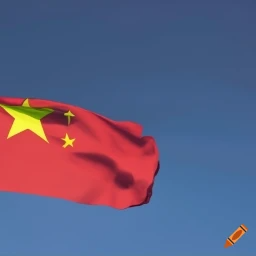presenter
China, officially known as the People's Republic of China, is a remarkable and influential country located in East Asia. With a rich history spanning thousands of years, China has made significant contributions to art, science, philosophy, and technology. Today, it stands as the world's most populous nation, with a population exceeding 1.4 billion people. China's sheer size and diversity are evident in its expansive landscapes, ranging from towering mountain ranges to vast plains and coastal regions. As a global powerhouse, China has experienced rapid economic growth and is now the world's second-largest economy. Its vibrant cities, such as Beijing and Shanghai, serve as bustling centers of commerce, culture, and innovation. China's unique blend of ancient traditions and modern advancements, combined with its political system and global influence, make it a captivating and complex nation. In this ever-changing world, understanding China and its multifaceted dynamics is of great importance. From its rich cultural heritage to its advancements in technology and its growing role on the global stage, exploring the various aspects of China offers a glimpse into a nation that continues to shape the world in numerous ways.
Information on China
China, officially known as the People's Republic of China (PRC), is a vast country located in East Asia. It is the most populous country in the world, with a population of over 1.4 billion people. China has a rich history that spans thousands of years and has made significant contributions to art, science, philosophy, and technology.
The capital city of China is Beijing, which also serves as the political and cultural center of the country. China's political system is a socialist one-party state, with the Communist Party of China (CPC) holding power. The country has experienced rapid economic growth over the past few decades and is now the world's second-largest economy, trailing only the United States.
China is known for its diverse landscapes, ranging from the vast plains in the east to the Himalayan mountains in the west. It has a variety of climatic zones, including temperate, tropical, and arid regions. The country is home to many iconic landmarks and attractions, such as the Great Wall of China, the Forbidden City, and the Terracotta Army.
Chinese culture is deeply rooted in Confucianism, Taoism, and Buddhism, which have influenced its art, literature, philosophy, and social structure. The Chinese language, Mandarin, is the most widely spoken language in the country, although there are several other regional languages and dialects.
China is a major global player and has a significant influence on the world stage. It is a permanent member of the United Nations Security Council and has become increasingly active in international affairs. The country has been involved in various territorial disputes, such as those in the South China Sea, and has embarked on ambitious infrastructure projects like the Belt and Road Initiative, which aims to enhance connectivity and trade between China and other countries.
Despite its economic success, China faces several challenges. Issues such as environmental pollution, income inequality, human rights concerns, and censorship have been subject to criticism both domestically and internationally. The Chinese government has implemented various policies to address these challenges, but they continue to be areas of ongoing concern.
In conclusion, China is a complex and diverse country with a rich history, a rapidly growing economy, and a significant global presence. Its cultural heritage, political system, and economic development make it a fascinating and influential nation in today's world.


0 Comments: